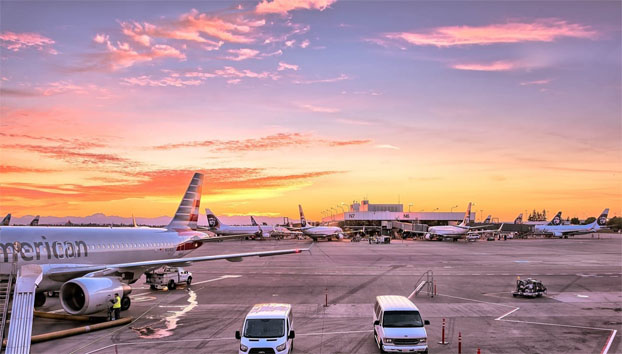Travel around Cardiff can be a nightmare, and in the winter months it can get even worse. But there are some people who try their best to keep the city moving.
Travel is always disrupted by weather. Walking, running, driving or cycling, any form of transport is hampered by a change in weather. Whether it’s a change of clothes or taking more time to complete the journey, something must always be done to cope with the unpredictable UK climate. Unfortunately, the Cardiff Council, airport, and rail services are unable to control the weather. They are, however, able to control the environment in which we live, in an effort to reduce the effects of poor weather on our travel requirements.
On Thursday the 12th of January, the country held its breath in anticipation for “thundersnow” and a barrage of snow and sleet. Promised was a nationwide halt on all transport as this super snow buried the UK. As it happened, Scotland bore the brunt (as per usual) and South Wales was left with a frosty morning, but little more. However, Cardiff still had to make preparations. Ian Lloyd-Davies, of the Cardiff Council, said, “We monitor the weather through weather stations across the city, and grit various routes if the temperature drops below zero.”
.embed-container { position: relative; padding-bottom: 56.25%; height: 0; overflow: hidden; max-width: 100%; } .embed-container iframe, .embed-container object, .embed-container embed { position: absolute; top: 0; left: 0; width: 100%; height: 100%; }
The council has links with the Met Office to make sure that they are ahead of the curve when it comes to poor weather. The plan then is to grit the appropriate areas when it is required. Gritting is needed to reduce the amount of snow that lands on the ground and sticks, or to reduce the build-up of ice. Each year, 1000 people are killed or seriously injured by accidents involving snow and ice in the UK. Each year in the UK, if roads were not gritted, then it’s predicted that the cost of delays would be £2 billion. Ian Lloyd Davies said “[In the week of predicted heavy snowfall] we gritted the principle routes 3 times. The main roads into the city were also gritted by the South Wales Trunk Road Agency, as they use the same monitoring services that we do.”
The severity of the weather is communicated to the public by the Council. “This communication with the public is done via social media and traditional media when they occur.” The Council uses social media to get across any type of major travel disruption. The reason for this is likely to be that it is quicker than using traditional media that can only give updates at certain times, and often isn’t specific to Cardiff. Social media also allows the public to communicate back to them with any updates as they occur.
Newport Road is currently shut outside Rumney Police Station due to a Police Incident. Traffic is being diverted in both directions.
— City of Cardiff (@cardiffcouncil) January 12, 2017
Speaking to members of the public about transport in Cardiff, it seems that general opinion of the roads is poor.
Amy, 22, said “I drive to work every day in The Royal Gwent in Newport. The traffic leaving Cardiff is always horrendous, particularly if I leave a little later than normal. Luckily over the winter, the traffic was actually less, because all the students finally went home.”

Sam, 27, said “Well I tend to just walk to work, but occasionally I’ll spend the night at my partners outside of Cardiff. In this instance, I’ll take the bus to work, and the buses are awful in the winter. If there’s any snow or ice, the buses are always late. And there’s nothing worse than standing in freezing cold weather at 9 o’clock in the morning waiting for a late bus.”

Kate, 20, said “I don’t have a car, so if I need to get around Cardiff I need to use buses. Unfortunately during the winter, when the weather gets really cold, they’re a nightmare. It should take me 20 minutes to get to work, but when it’s icy it’s more like half an hour. And the buses are always really steamed up.”
It seems, therefore, that the Cardiff Council may not be doing enough to help people who use public transport during the winter months. UK figures suggest that the government spends over £150 million per year on gritting roads, but to avoid lateness of public transport, it’s possible that spending on these sorts of preventative measures should increase.
Another part of Cardiff transport that must find ways to deal with severe weather is the Cardiff Airport. Towards the end of 2016, there was a severe case of fog that caused airports up and down the country to cancel and delay flights. One of the airports affected by this was Cardiff. Rhiannon Jenkins of Cardiff Airport said “Cardiff Airport works closely with the Met Office to receive long-term outlooks. We then work closely with NATS air traffic control and our 18 airlines.” NATS is the National Air Traffic Control Service, and trains people to be able to monitor weather to determine whether or not planes should fly.

Cardiff airport does tend to need as much help as it can get during the winter period. Rhiannon Jenkins said, “We usually see an increase in passengers flying home for Christmas or jetting off to visit family and friends over the festive period.” This indicates how important it is for the airport to keep the area safe and monitor weather updates as they arrive. Cardiff Airport, like many others, works with a lot of airlines, and so must ensure that it remains ahead of the curve when it comes to poor weather. It doesn’t deal with long haul flights, generally only working with KLM at Schiphol to orchestrate long range flights. “Cardiff Airport is continuously in talk with airlines to offer the best deal for our customers, so it’s a case of watch this space”, said Rhiannon Jenkins.
The most important thing for any transport agency to consider is how to deal with severe weather, and ensuring that those who use the roads and public transport are safe, but also get good value for money. Severe weather can affect everyone who travels, but in Cardiff there are many measures put in place to ensure things run smoothly. Working in conjunction with private travel companies such as Bws Caerdydd and Great Western Rail, the Cardiff Council puts measures in place to ensure that commuters are safe at any time of the year.
